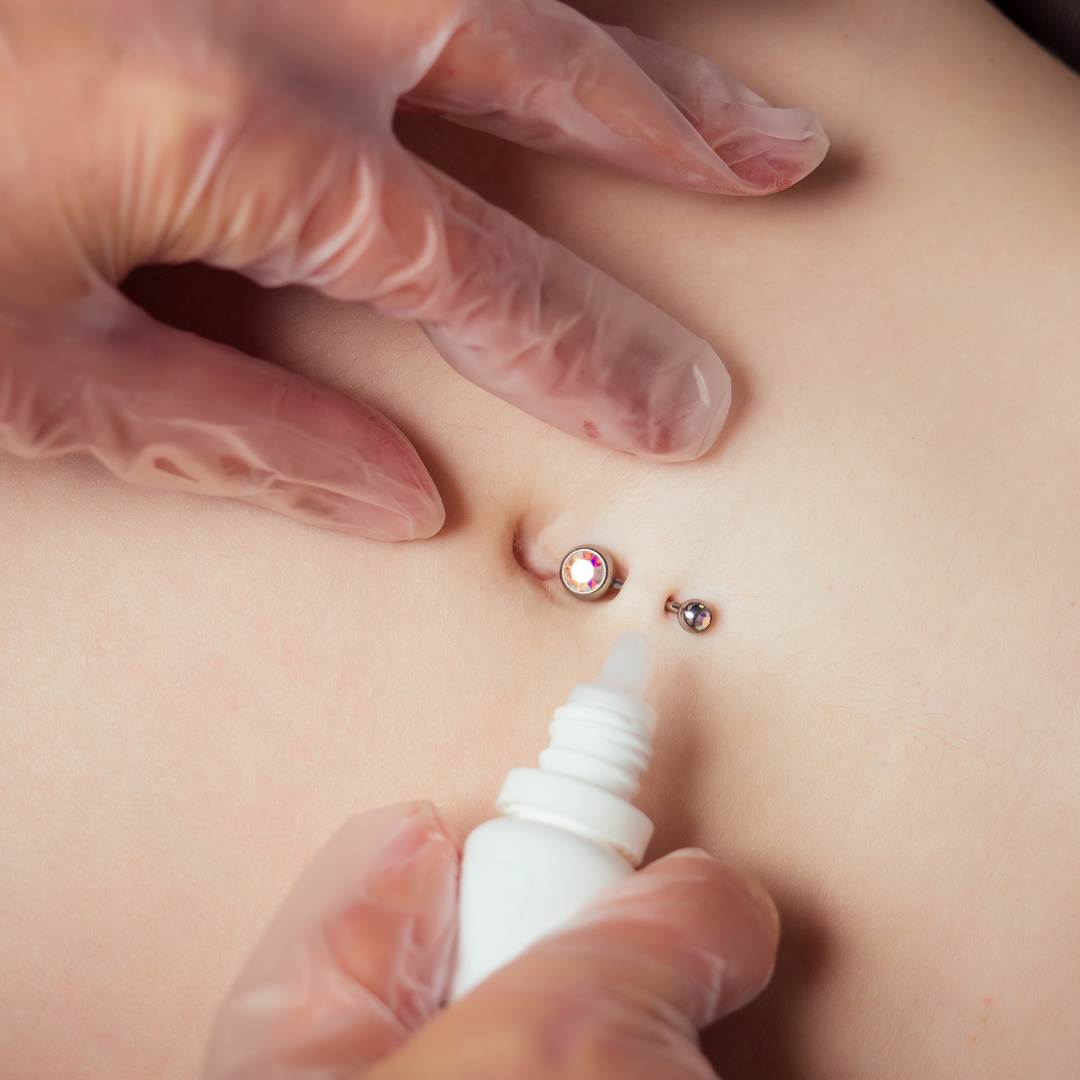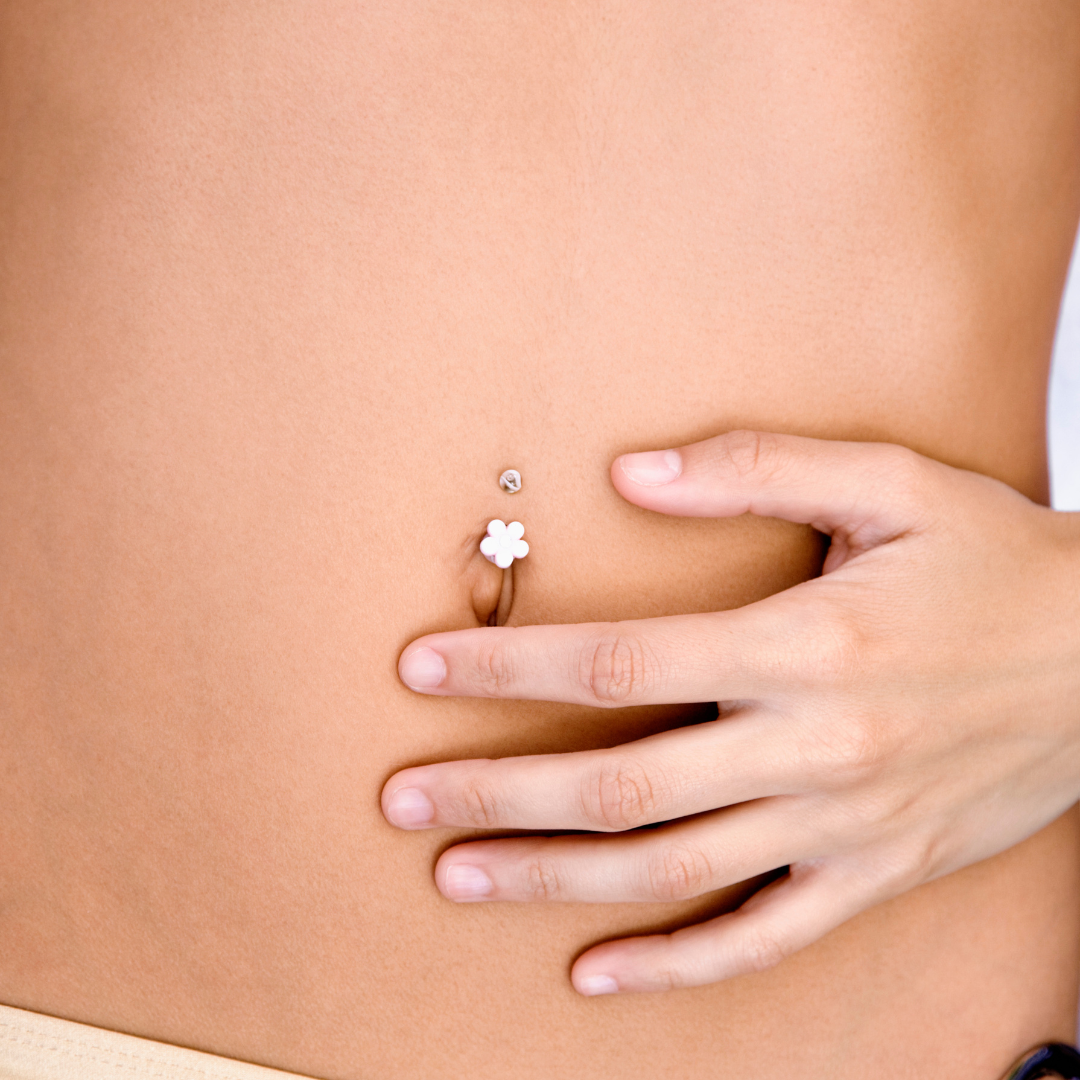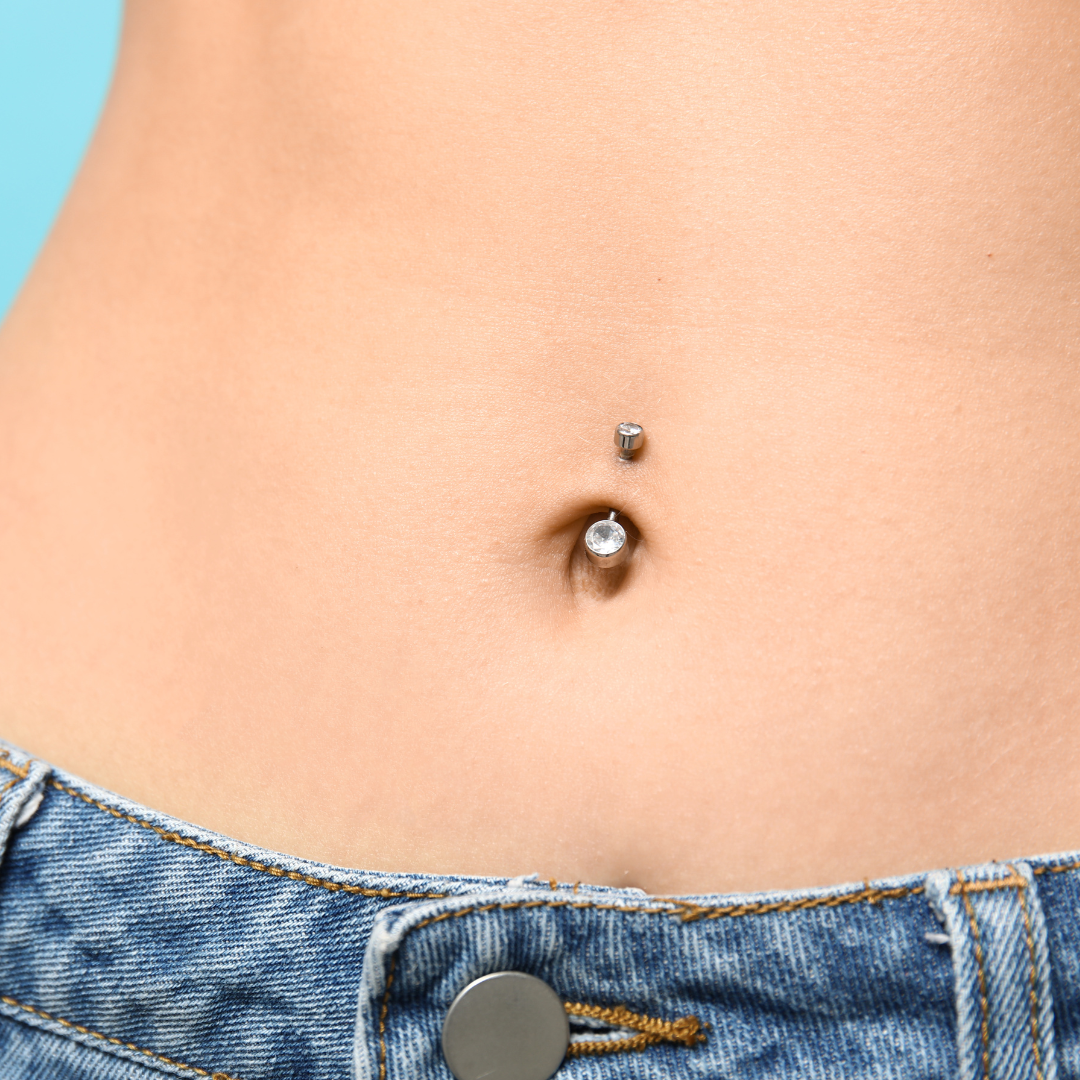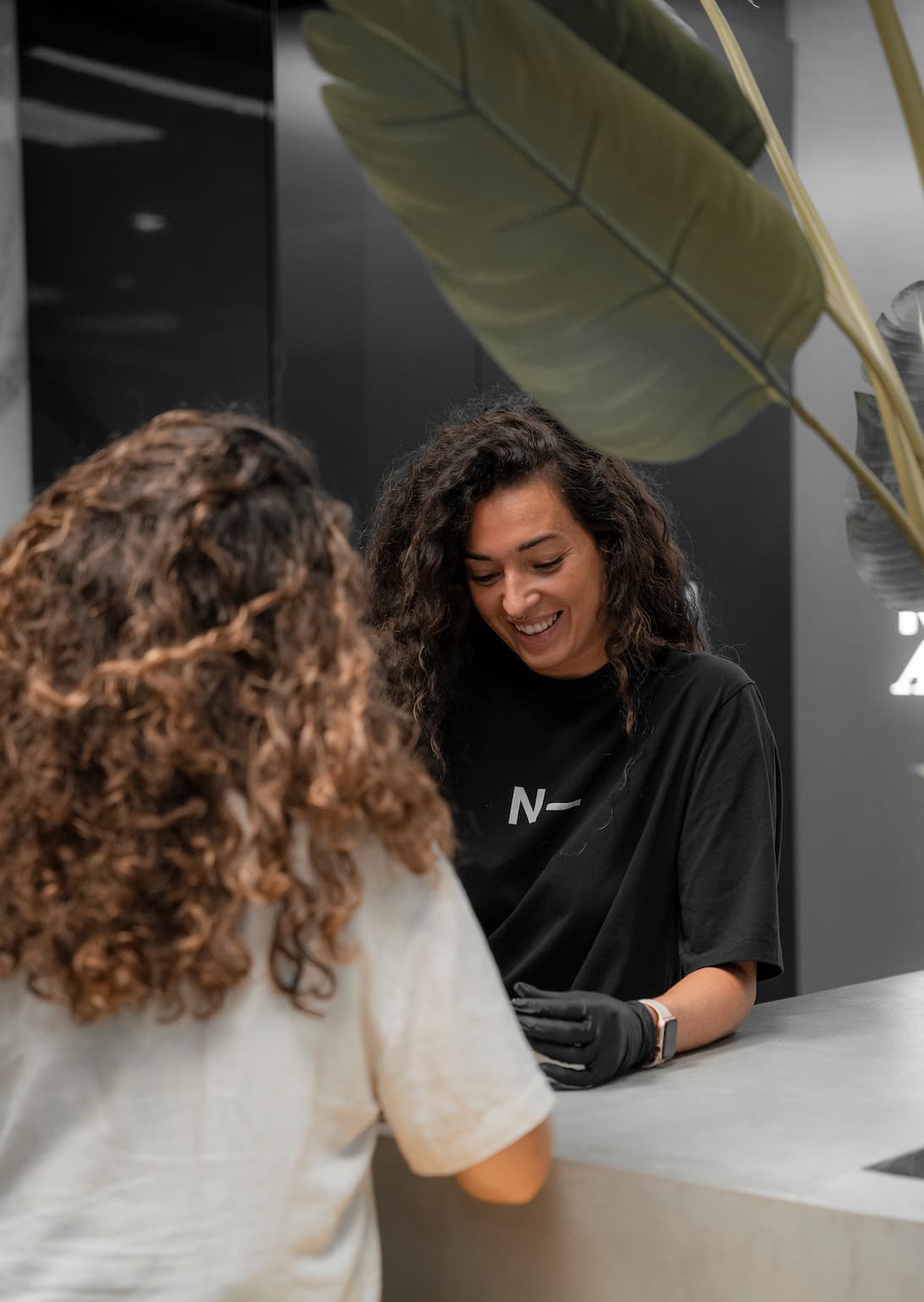Importance of hygiene and care in navel piercing
As with other types of piercings, proper healing is a crucial part of the care process to avoid infections and promote healthy healing. We must understand that the skin around the belly button is more prone to the buildup of sweat, bacteria, and dirt, which increases the risk of infections. With this in mind, note these four steps to start implementing from now on: Regular Cleaning: It is essential to clean the piercing area at least twice a day with a saline solution or a specific piercing cleaner. Avoid using alcohol, hydrogen peroxide, or any other products that might irritate the skin. Clean Hands: Always wash your hands before touching your piercing to prevent the transfer of bacteria. Appropriate Clothing: Wear loose and breathable clothing to avoid irritation and constant rubbing against the piercing. Avoid Submerging the Piercing: During the first few weeks, avoid swimming in pools, hot tubs, or any other non-sterile water environments, as this can introduce bacteria into the wound.





